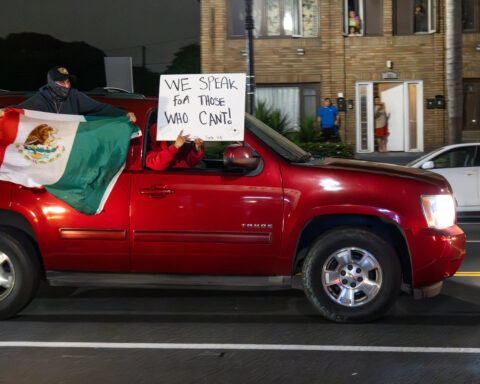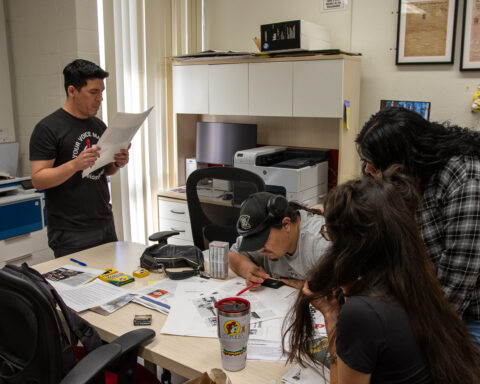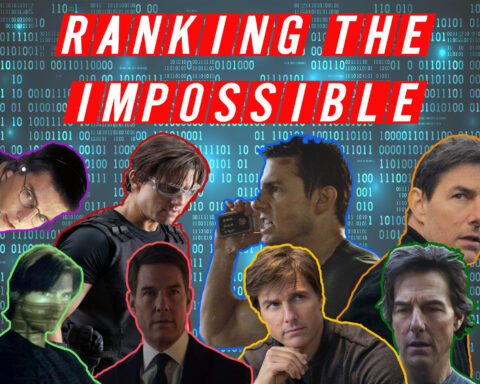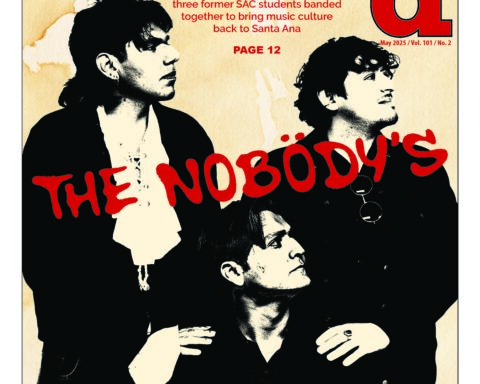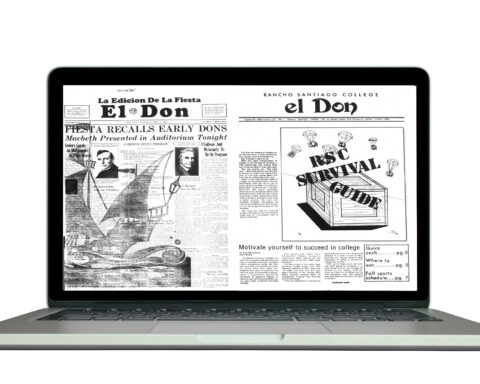Suzanne Collins first thought of the concept behind The Hunger Games as she was sitting at home watching television. As she flipped through channels of reality TV and coverage of the Iraq war, Collins realized that there was an enormous divide between the content audiences were consuming…and it unsettled her.
I, alongside others, was reminded of this feeling once again last Monday night, when news of Israel’s ban of Al-Jazeera—the only media network on the ground documenting the genocide in Palestine—and the invasion of Rafah flooded my timeline.
Among pictures of children buried in the rubble were social media threads of celebrities at the Met Gala. Countless social media users were raving about the intricate dresses celebrities were wearing—others were calling the event “dystopian” because it eerily resembled Collins’s The Hunger Games Trilogy.
A dystopia or an anti-utopia, is a fictional world in which the central government creates fear in its inhabitants by ensuring that their living conditions are poor and dehumanizing.

While the tweets and posts exclaiming about the similarities between the Met Gala and The Hunger Games are right in the sense that it’s an uncomfortable similarity, I think the one flaw in them all is the captioning. Social media users were claiming that a timeline flooded with pictures of celebrities wearing insane dresses one second to videos of crying injured children the next was “dystopian.”
However, nothing about the genocide and attempted erasure of an entire population and their history is fictional. Trying to describe a genocide through phrases like “this feels so dystopian” is counterintuitive to the work of journalists and Palestinians who have tried so hard to get the world to believe their suffering is really happening.
I’m not saying it’s a bad thing for people to point out these similarities as a form of critiquing the status quo. That’s what dystopian novels are meant to teach us.
All I am saying is that by calling something that is happening in real life “dystopian” instead of saying it is disgusting or disturbing, we are not only taking away value from the situation at hand but also creating leeway for others to simply scroll past these photos and videos.
While some may argue that this is nothing new and that multiple genocides have happened all over the world, the truth is, that our obligation to be truthful in the way we advocate for Palestine stems from the fact that our country has a direct link to Israel.
The president has denied Israel’s wrongdoings to the public eye more than once. On Tuesday, Congress approved a Biden Package of more than $1 billion worth of weapons.
When we condense a situation to a few buzzwords to make it easier for us to consume, the easier it is for the U.S. to get away with enabling the destruction of an entire country. It’s important we realize that the language we use is not helping the cause at all and when we re-word the narrative, we normalize the violence.
Think of all of the times you came across a new headline about a shooting. The more we saw, the less it shocked us. And that is where the danger lies.
We can’t risk desensitizing ourselves to genocide. It’d be unfair to Palestinians for us to simply move on with our lives when they’ll likely never be given the same chance.
So while seeing celebrities spend thousands of dollars to put on extravagant displays of wealth for our consumption was fun at some point, we have long passed a point in time in which “I don’t get into politics” is still a somewhat passable excuse for ignorance.
Instead of treating real-life suffering as a story that could only happen in an alternate universe, stop trying to make things easier for you to consume. Reshare videos posted by Palestinians in Rafah. Educate friends, family and followers by pointing them in the direction of Palestinian content creators.
If you’re already doing all of the above, then strengthen your advocacy by using language that doesn’t bury the truth. Be direct. Don’t embellish. Don’t sugar-coat. No cushioning the blow.
And for the love of god, stop reposting Zendaya’s Met Gala look (all three of them).
It’s the least we can do for the Palestinian martyrs.
- Download and print our Spring 2024 opinions zine - June 25, 2024
- It’s not “dystopian,” it’s real. - May 16, 2024
- Hammond Hall set to be vacated because it is not ADA accessible - May 14, 2024






